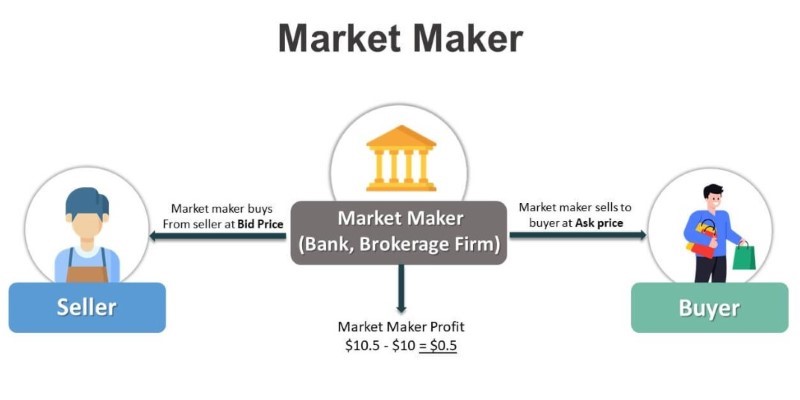Bipolar disorder is a complex mental health condition characterized by extreme mood swings that include emotional highs (mania or hypomania) and lows (depression). These shifts in mood can significantly affect daily life, making effective management crucial for maintaining stability and well-being.
Managing bipolar disorder involves understanding its causes, identifying symptoms early, and applying both medical and lifestyle remedies that can mitigate its effects. This guide delves into these aspects to offer a clearer picture of how to manage bipolar disorder and achieve a more balanced life.
Bipolar disorder management involves strategies to stabilize mood swings and maintain emotional balance in individuals diagnosed with the condition. It typically includes a combination of medication, such as mood stabilizers and antipsychotics, and psychotherapy techniques like Cognitive Behavioral Therapy (CBT). Lifestyle adjustments, such as maintaining a consistent sleep schedule, regular exercise, and stress management practices, are also crucial. Effective management focuses on preventing relapses by monitoring symptoms, ensuring treatment adherence, and establishing strong support systems. The goal is to minimize the impact of extreme mood episodes, enabling a more stable and productive life.
The exact cause of bipolar disorder remains unclear, but it is generally believed to result from a combination of genetic, biological, and environmental factors.

Research has shown that bipolar disorder tends to run in families, indicating a strong genetic link. Studies have identified specific genes that may increase the risk, though no single gene is responsible. Individuals with a family history of bipolar disorder are at a higher risk, yet not everyone with a genetic predisposition develops the condition.
Imbalances in neurotransmitters (chemical messengers in the brain) like serotonin, dopamine, and norepinephrine are believed to play a significant role. Additionally, structural and functional changes in the brain, particularly in areas associated with emotion regulation, have been observed in individuals with bipolar disorder.
Stressful life events, trauma, and substance abuse can trigger or exacerbate the onset of bipolar disorder in those predisposed to it. These environmental factors can also act as catalysts, worsening the frequency and intensity of mood episodes.
Bipolar disorder manifests through a combination of manic, hypomanic, and depressive episodes. Understanding these symptoms is key to effective bipolar disorder management.
During a manic phase, individuals may feel excessively energetic, euphoric, or irritable. They might engage in impulsive behaviors like spending sprees, risky activities, or making grandiose plans. Manic episodes can severely disrupt daily routines and relationships.
Hypomania is a milder form of mania. Although less extreme, hypomanic episodes can still lead to poor decision-making and risky behaviors. Unlike full-blown mania, hypomania doesnt typically lead to severe impairment, but its a warning sign that should not be ignored.
The depressive phase of bipolar disorder is marked by overwhelming feelings of sadness, hopelessness, and fatigue. Individuals may struggle with low energy, loss of interest in activities, and suicidal thoughts. These episodes can last weeks or even months, significantly impairing day-to-day functioning.
Some people experience symptoms of both mania and depression simultaneously, known as mixed episodes. These episodes are particularly challenging because they combine the agitation and impulsivity of mania with the despair and lethargy of depression.
Managing bipolar disorder requires a combination of medication, therapy, lifestyle adjustments, and social support. Heres a concise exploration of the key strategies.
Medication is fundamental for managing mood swings in bipolar disorder. Mood stabilizers like lithium are commonly used to prevent the extreme highs (mania) and lows (depression) characteristic of the disorder. Antidepressants can be included for depressive symptoms, though they must be monitored carefully as they may trigger manic episodes. In severe cases, antipsychotics and anti-anxiety medications are prescribed to manage intense symptoms and provide additional relief during acute episodes.

Therapy is essential for learning to manage the emotional and cognitive challenges of bipolar disorder. Cognitive Behavioral Therapy (CBT) focuses on identifying and changing negative thought patterns while teaching coping strategies for stress. Interpersonal and Social Rhythm Therapy (IPSRT) emphasizes maintaining a consistent routine, particularly in sleep patterns, which helps stabilize mood fluctuations. Family therapy is also beneficial, as it educates loved ones, improves communication, and fosters a more supportive environment.
Lifestyle choices play a critical role in managing bipolar disorder. Maintaining a regular sleep schedule is vital since irregular sleep patterns can trigger mood episodes. A balanced diet and regular physical exercise also contribute to mood stability, with exercise releasing endorphins that naturally boost mental well-being. Effective stress management is essential, and techniques like mindfulness, meditation, and relaxation exercises help reduce the risk of mood episodes.
Building a strong support network is key for long-term management. Open communication with family, friends, and healthcare providers helps in recognizing early warning signs and acting swiftly. Support groups, whether in-person or online, provide valuable shared experiences and strategies, reducing feelings of isolation and offering comfort to others who face similar challenges.
Understanding bipolar disorder and becoming familiar with personal triggers is another important remedy. Patients benefit from educating themselves about the condition, which empowers them to recognize patterns in their mood and behavior. This awareness leads to better self-management, allowing individuals to anticipate and mitigate potential triggers before they escalate into full-blown episodes. Consistent monitoring of ones emotional state and journaling moods can be helpful in identifying trends that might require intervention.
Managing bipolar disorder is a lifelong journey that requires a multi-faceted approach. While the condition can be challenging, understanding its causes, recognizing early symptoms, and implementing both medical and lifestyle remedies can lead to a more stable and fulfilling life. With the right support, consistent treatment, and proactive management strategies, individuals living with bipolar disorder can find balance and lead meaningful lives despite the ups and downs that come with the condition.

By Celia Shatzman/Sep 04, 2024

By Juliana Daniel/Sep 03, 2024

By Pamela Andrew/Sep 04, 2024

By Isabella Moss/Aug 28, 2024

By Kristina Cappetta/Sep 04, 2024

By Verna Wesley/Aug 27, 2024

By Maurice Oliver/Aug 29, 2024

By Kelly Walker/Jul 13, 2024

By Kristina Cappetta/Oct 03, 2024

By Susan Kelly/Aug 29, 2024

By Susan Kelly/Sep 04, 2024

By Darnell Malan/Sep 04, 2024